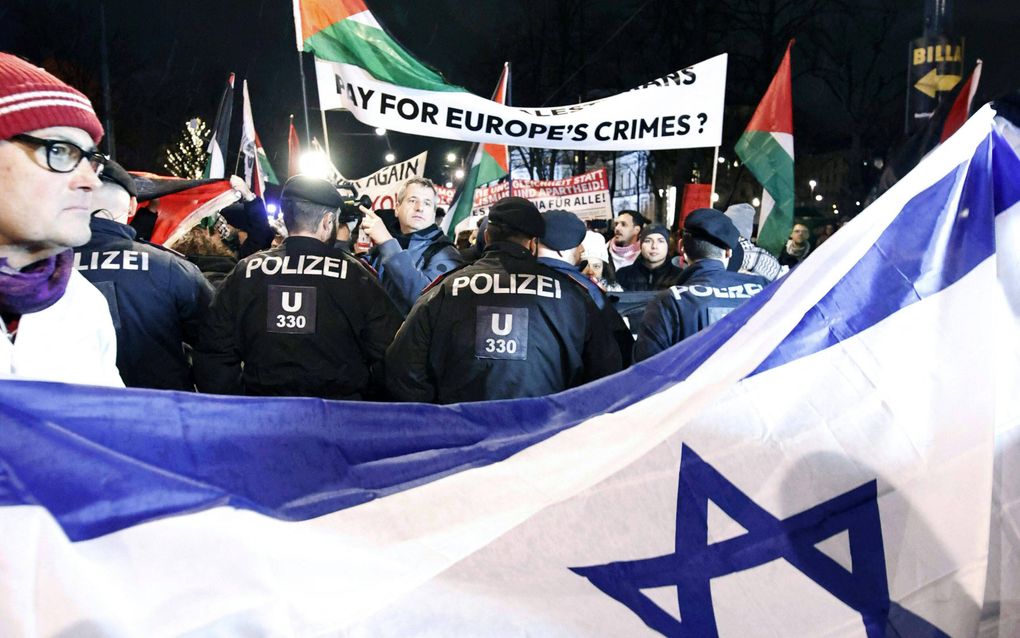Column from Germany: How anti-Semitism divides Christians

Police stand between pro-Israel and pro-Palestine protesters during a rally under the motto "Defend Democracy" against right-wing extremism, racism and anti-Semitism. Photo AFP, Tobias Steinmaurer
Christian Life
Universities are making headlines in Germany. Not only have there been anti-Semitic demonstrations at universities. Also “fundamentalist Christians” are under criticism.
Even the president of the renowned Technical University in Germany's capital, Geraldine Rauch, is in trouble. Rauch used her X account to link posts with anti-Semitic imagery, such as a text about a demonstration in Turkey against the Israeli operation in Rafah.
This post by a presumably Russian user was accompanied by a picture showing a poster of a demonstration on which Israeli Prime Minister Benjamin Netanyahu is marked with bloodstains and swastikas.
She was heavily criticised for this by the Governing Mayor, the Central Council of Jews. The university’s Executive Board, among others, and many have called for her resignation, including an (albeit narrow) majority of the Academic Senate, the highest body of the self-governing university. However, the majority required to formally vote her out of office did not materialise, as a number of students and employees showed their solidarity with the president. Thus, the president of the university, with 35,000 students, remains in office.
Concern
Another university, the Eberhard Karls University in Tübingen (27,000 students), which is known for its conservative theologians, is also causing concern among Christians. Its alumni include a pope (Benedict XVI), German presidents, EU commissioners, ministers and judges of the German Federal Constitutional Court.
At the invitation of Christian groups, Christian speakers have held speeches on various topics over the last few days, including about their faith. Also prominent speakers took the stage, for example, the Christian influencer and physician Jana Highholder and the managing director of Fontis Verlag, Dominik Klenk.
The event was organised by SMD, Campus Connect and the Albrecht-Bengel-Haus – the first two are nationwide networks of Christian students, while the Albrecht-Bengel-Haus is a spiritual community of pietist Christians affiliated with the large Evangelical Gnadauer Gemeinschaftsverband. One of its first leaders was Gerhard Maier, who was later elected Bishop of the Evangelical Church in Württemberg.
Fundamentalist
However, the official student organisation of his church, the Evangelische Studierendengemeinde (ESG), condemned these activities together with the Katholische Hochschulgemeinde (KHG), the official student organisation of the other larger church: They publicly protested against the events organised by "fundamentalist Christian circles".
This view is astonishing: until recently, Jana Highholder, who has been so harshly criticised, was the first YouTube ambassador for the Evangelical Church in Germany (EKD), i.e. all Protestant "Landeskirchen". And she even received a lot of praise for her YouTube channel "Jana glaubt".
However, the organisers and their speakers also received backing. The well-known pastor and blogger David Brunner accused the opponents of denouncing and cancelling dissenters of the event.
They would criticise a lack of tolerance but would themselves be intolerant where "the other opinion can no longer be incorporated into one's own opinion". But in reality, that is where tolerance is only just beginning, he believes.
So, this regional conflict shows how divided German Christians are.
Related Articles









